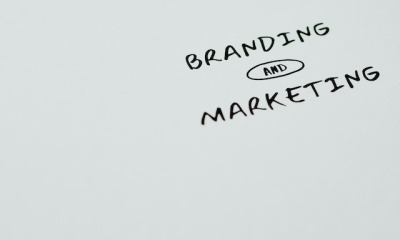A lot of information gets thrown at first time parents that can make it difficult to know what types of food your infant should be eating by a certain age. While every baby will have his or her own unique schedule when it comes time to switch from formula to solids, there are a few tips that parents can use to help them navigate their baby’s constantly evolving dietary needs.
Start Solids between Four to Six Months
For the majority of children, the recommended time to begin feeding them solids, which generally means a blend of rice cereal and formula or breast milk, starts between the ages of four to six moths. However, age isn’t the only determining factor when it comes to deciding whether your baby is ready for solids. Before you switch, your baby needs to be able to sit up (with help), move her head away, and make chewing movements. Your baby also needs to have outgrown the gage reflex that causes her to spit out anything that isn’t a liquid.

Don’t Give Up on Formula or Breast Milk
The majority of babies take time before they get used to eating solids. Instead of viewing solids as a replacement to formula or breast milk, think of them as an addition to your baby’s diet. Introducing solids to your baby should be a gradual process, and not the start date when you wave goodbye to the days of feeding him breast milk or formula. Consider it a gradual process.
Do You Have to Start with Rice Cereal?
No, you don’t. What type of solid food you first choose to start feeding your baby can be any of a number of items. Rice cereal is generally recommended as a starter food because it’s an iron-fortified, single-grain that the majority of children have no problems digesting. However, you should consider starting your baby on some type of single-grain cereal, as they make it easier to spot any potential food allergies than multigrain cereals.
Practice Makes Perfect
While you’ve had years of practice eating with a spoon, the process of eating solid foods is an entirely new one for your baby, who’s only enjoyed a liquid diet to this point in life. Your little one will need time to make the adjustment, which means he’ll need practice getting used to the feel of a spoon and solid foods in his mouth. This transition takes time, so don’t expect your baby to eat a lot when you first begin feeding him solids. Instead of planning an entire meal around solids, try feeding your baby only one or two teaspoons at first as he learns to enjoy the experience.
Keep an Eye Out for Allergies
Just as it makes sense to feed your baby a single-grain cereal so you can spot any potential allergies, it also makes sense to feed your child one fruit and vegetable at a time. If at first your baby refuses to eat a certain type of food, try reintroducing it to him at a later date instead of trying to force him to eat. Monitor how your baby reacts each time you feed him a new food to ensure no allergies are present.
Avoid Honey and Milk
The majority of pediatricians recommend that parents wait until after a child’s first birthday before feeding them cow’s milk, as some babies have a hard time digesting milk prior to that time. Pediatricians also recommend that parents not feed honey to a child prior to the age of 1 (or even possibly two) because of the risk of botulism that a young child’s immune system isn’t prepared to fight off.
Honey and milk also contain natural sugars that can damage your baby’s teeth. Dipping a pacifier in honey or laying a baby down to sleep with a bottle of milk provides plaque, a stick bacteria that lives in the mouth, the fuel it needs to produce acids that damage tooth enamel. Given enough time, these acids can cause tooth decay, which is known as baby bottle tooth decay in young children. While feeding your baby these types of foods is fine in moderation, they also require you to practice quality oral hygiene with your baby to avoid tooth decay.
Practice Good Oral Health
As your baby begins teething, it’s important to remember to take steps to protect their oral health, especially as you start to expand their diet. While a child can start developing teeth anywhere from three months to a year, the majority of children have their first tooth erupt around the age of six months.
After each feeding, it’s important that parents use a soft, clean washcloth to wipe down their baby’s teeth and gums. Parents should also start brushing their baby’s teeth with a child-sized toothbrush once a day. However, don’t use toothpaste until your child is old enough not to swallow everything that’s placed in his or her mouth.
Timothy Lemke blogs about dental care for children for Dr. Derrik Stark, a dentist in Ridgefield, Washington at Smiles Dental.

 Tech9 years ago
Tech9 years ago
 Tech9 years ago
Tech9 years ago
 Business4 years ago
Business4 years ago
 Business8 years ago
Business8 years ago
 Law3 years ago
Law3 years ago
 Tech4 years ago
Tech4 years ago
 Tech7 years ago
Tech7 years ago
































